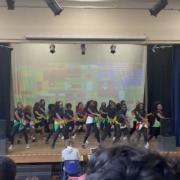
With the spotlight on rap partially being set as a result of the Met police attempts to remove content on social media that is deemed as “potentially harmful content” to combat knife crime in the UK. The police since November 2016 have made 576 referrals to social networking sites where 522 were remover mostly music videos from YouTube, it is clear to see why rap is often singled out in courts. This as well as the development of project alpha, which is a group of officers that work to predict violence and gang-related activity organised on social media.
Though the use of rap as evidence is certainly less significant than it is in America, with the surge of drill music statistics show that the use of rap in courts is on the rise in the UK. However, the use of rap in courts isn’t a new thing, with it being used for about the last 17 years.
Rap music is often used in courts in 3 ways: as evidence of bad character and to show a tendency to violence; sometimes prosecutors argue that certain lyrics correlate with incidents, whether this is the case at hand or another related incident; or to suggest that the violent lyrics in the songs are criminal threats.
Almost all the cases that where rap is used as evidence are gang-related offences. A gang is defined by CPS as a group that “consists of at least three people; and has one or more characteristics that enable its members to be identified by others as a group”. This definition might not be what originally springs to mind when you think about what a gang is. What probably more commonly springs to mind is, maybe a group of teenagers in tracksuits hanging about around a council estate or a group of people, who sell illegal drugs and brandish offensive weapons. These types of gangs that are most heavily associated with the term gang would be urban street gangs. However, some may argue that due to the heavily racialised use of the term urban, with a definition in the Oxford dictionary being “denoting or relating to popular dance music associated with black performers” or “denoting popular black culture, many people feel that the use of the word gang can create a bias within our legal system.
Rap as evidence as a whole is very controversial, due to the fact that rap is often either storytelling, symbolism, or heavily metaphorical. However, if rap is going to be used as evidence many believe further efforts may need to take place to determine certain things such as the person’s involvement in the creation of the song. Did they write it? When was it written? The purpose of the song? What were they doing in the music video? In certain cases, this is considered upon appeal if it isn’t in the trial but sometimes it isn’t considered at all.
The reason you tend not to hear other genres of music being used in court seems to be down to the gangster image that rap was traditionally founded upon. Unfortunately for rap music, its history and how it was founded hinders it today. Whilst some people would argue that rap is solely a fictional media and should be treated as one. Rappers go to the effort unlike in literature or any other fictional media to go through the extensive effort of creating a made-up stage name. Others would say that if you’re rapping about a topic and say that what you rap about is about what you see in your surroundings every day. You can’t claim that none of what you rap about is completely untrue.
Many people are concerned that there is a close relationship with stereotypes, about what a certain race or class of people are like, and the use of rap in courts is an attempt to demonise the suspect in order to convince the jury. This would in turn create a bias within our legal system. This idea is something raised by a case analysis of 30 cases by the London School of Economics. In the analysis, they looked at cases reported between 2005 and 202. With the ten most recent being between 2018 and 2020. In 26 cases, the defendant had been convicted of a violent offence or one involving weapons. 22 of the cases were committed and tried in London. The use of rap exclusively being used against male defendants, with lyrics and music videos primarily being used as evidence against black people. This reinforces the question of whether this is a deliberate tactic based on stereotypes. In 21 of the 30 cases were said to be gang related where lyrics and music videos were used to link the defendants to a joint enterprise offence.
To conclude the use of rap in courts is a very powerful tool for the prosecution - within almost all cases the defendants failing to get it dismissed from the case. Whilst for the defendant it is the Achilles heel of their defence. With the rise of music, such as drill music surging in popularity across the globe, it only seems as if the use of rap in courts will rise. Maybe we will see the literal use of rap music for other creative genres in the future?



























